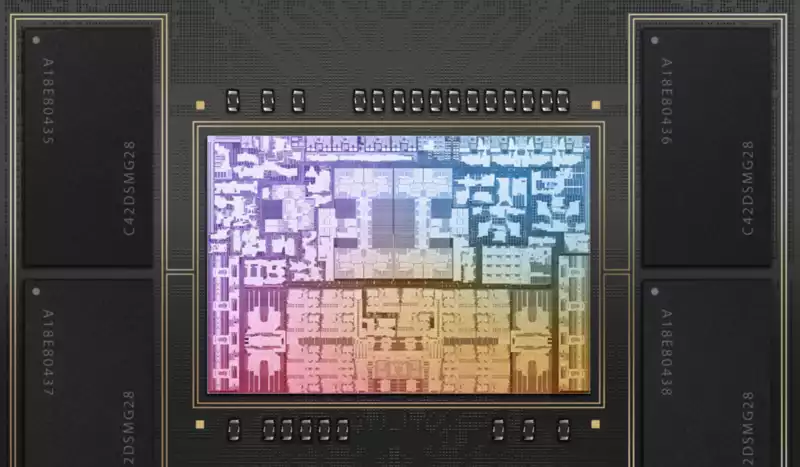Apple has taken the covers off its M2 Pro and M2 Max chips, which are more powerful versions of the M2 chips currently found in the MacBook Air M2 and MacBook Pro 13-inch.
These new Pro and Max chips will be available in the new MacBook Pro 14-inch and MacBook Pro 16-inch in 2023, as well as the newly revamped Mac mini.
Building on the M2 architecture announced last year, Apple has scaled up for the M2 Pro and M2 Max. The goal is simple: to tackle professional workloads more efficiently than the M1 Pro and M1 Max chips.
The M2 Pro and M2 Max "deliver incredible professional performance along with industry-leading power efficiency," explained Johnny Srouji, Apple's senior vice president of hardware technology. With even more powerful CPUs and GPUs, support for larger unified memory systems, and an advanced media engine, the M2 Pro and M2 Max represent incredible advances in Apple silicon." [Apple sells the M2 Pro in a variety of configurations, with up to a 12-core CPU and 19-core GPU, and access to 32GB of high-speed unified memory with 200GB/s bandwidth The M2 Max goes even further, with up to 38-core GPU, twice the 400GB/s unified memory bandwidth, and up to 96GB of unified memory.
What does this mean for professional users? According to Apple, with almost 20% more transistors than the M1 Pro, the M2 Pro will process images in Photoshop up to 40% faster than the previous model and 80% faster than the fastest Intel-based MacBook Pro with the Core i9 processor The company says it will be 80% faster than the fastest Intel-based MacBook Pro with Core i9 processors.
The M2 Max has 67 billion transistors, 10 billion more than the M1 Max and three times more than the M2, and a GPU with up to 38 cores and a larger L2 cache. This means graphics speeds up to 30% faster than the M1 Max.
Other highlights of the new M2 Pro and M2 Max include a "next-generation" 16-core Neural Engine that is 40% faster than the previous generation and capable of 15.8 trillion operations per second. Apple also states that the chip can handle multiple stems of 4K and 8K ProRes video with hardware acceleration for H.264, HEVC, and ProRes codecs.
In other words, these chips will outperform the already powerful enough M1 variants. But power is not everything, especially when it results in compromised laptop battery life.
However, Apple claims that the increased efficiency provided by the M2 makes the new MacBook Pro the longest battery life in Mac history (up to 22 hours). While laboratory testing suggests this is likely, Apple has long claimed battery life, and this new MacBook Pro could be quite durable.
In short, the M2 Pro and M2 Max appear to offer noticeable power and efficiency gains over the previous models being phased out by Apple.
How significant this is in actual use remains to be seen in our own testing. However, we are pleased to see Apple continue to push their own silicon, and AMD and Intel should likewise continue to make notable improvements to their chips.










Comments